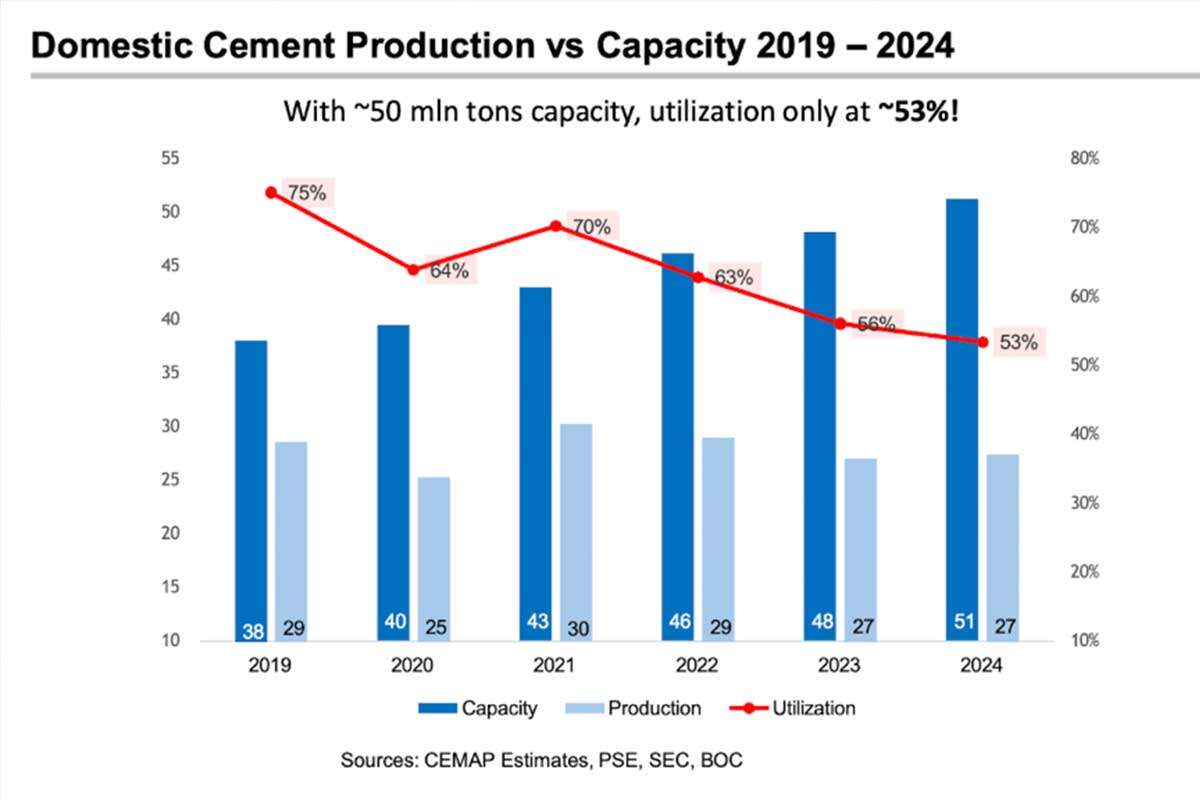By Journal Online
Copyright journal

The proposed safeguard duty on cement imports is not expected to cause price increases, according to industry groups. They say the measure is needed to give local manufacturers a fair chance to compete against foreign suppliers that enjoy government support.
In March, the Department of Trade and Industry (DTI) imposed a provisional safeguard duty of Php 400 per metric ton, or Php 16 per 40-kilogram bag, on imported cement. The duty will last for 200 days and was initiated motu proprio by the DTI after finding signs of serious harm to the local industry. Since then, cement prices have stayed stable, with many local manufacturers keeping the market competitive.
In 2024, cement imports reached 7.6 million metric tons, mostly from Vietnam. This happened even though the Philippine industry has a total capacity of 51 million tons. Demand was only around 35 million tons, and actual production dropped to 27 million tons. That means only 53 percent of the capacity was used. The result: Php 5 billion in losses, slower operations, and job cuts.
Industry leaders say the situation is unfair. Some Vietnamese cement companies are state-owned or receive government incentives that Filipino manufacturers do not get. This allows them to sell cement at very low prices, even when the Philippines already has enough supply.
When sought for comment, CeMAP Executive Director Rey Baja emphasized the urgency of the safeguard measure. “We need this safeguard to ensure the industry remains viable and to protect local jobs. We also don’t think it will result to higher prices,” he said. Mr. Baja further emphasized, “It is of national interest to promote and protect local cement industry against unfair competition from other countries. The Philippines is not subsidized”.
The safeguard measure has strong support from business groups like the Philippine Chamber of Commerce and Industry (PCCI) and the Federation of Philippine Industries (FPI). They say it is needed to protect local jobs and keep the industry alive. Cement manufacturing contributes at least 1 percent to the country’s GDP and supports around 130,000 direct and indirect jobs.
Local manufacturers also help in other ways. Domestic cement companies with integrated plants support the government’s environmental initiatives by serving as key enablers in the recovery and processing of plastic waste for use as alternative fuel. The country generates and produces approximately 2.7 million metric tons of plastic waste each year, making these initiatives impactful.
The industry is in a difficult position. Stakeholders say a definitive safeguard is needed to keep local cement manufacturing viable and able to support the national interest.
About CeMAP
The Cement Manufacturers Association of the Philippines, Inc. (CeMAP) is the industry association of integrated cement manufacturers in the Philippines, with member-companies operating nationwide, comprising of Apo Cement Corporation, Goodfound Cement Corporation, Holcim Philippines Inc., Republic Cement & Building Materials, Inc., Solid Cement Corporation, and Taiheiyo Cement Philippines Inc.



